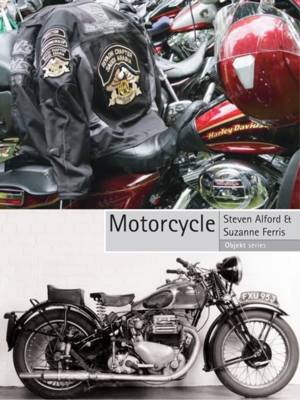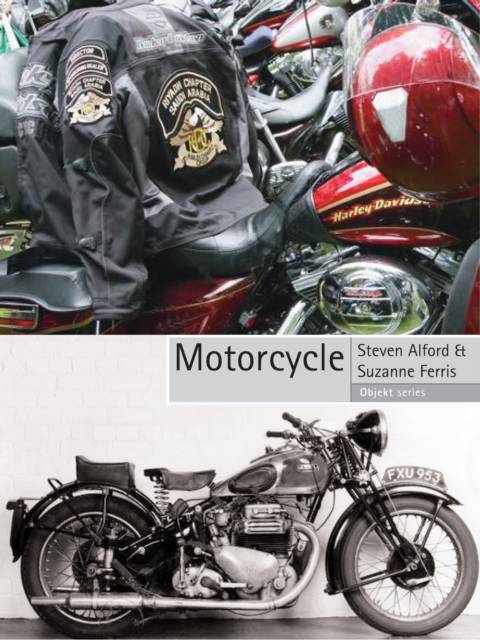
- Afhalen na 1 uur in een winkel met voorraad
- Gratis thuislevering in België vanaf € 30
- Ruim aanbod met 7 miljoen producten
- Afhalen na 1 uur in een winkel met voorraad
- Gratis thuislevering in België vanaf € 30
- Ruim aanbod met 7 miljoen producten
Zoeken
Omschrijving
Easy Rider. Motocross Grand Prix. James Dean in Rebel Without a Cause. The motorcycle is a global icon of untamed freedom, symbolizing a daring and reckless lifestyle of adventure. Yet there are few books that chronicle how and when this legendary vehicle roared down the open road. Motorcycle explores the roots of the rebel's ultimate ride.
After early incarnations as a nineteenth-century steam-powered bicycle and multi-wheeled vehicles, the modern motorcycle came into its own as a cheap, mobile military asset during World War I. From there, it rapidly spread through modern culture as a symbol of rebellion and subversive power, and Motorcycle tracks the symbolic role that the bike has played in literature, art, and film. The authors also investigate the international subcultures that revolve around the motorcycle and scooter. They chart the emergence of American biker culture in the 1950s, when decommissioned fighter pilots sought new ways to satiate their desire for thrill and danger, and explore how the motorcycle came to represent the untamed nonconformity of the American West. In contrast, smaller scooters such as the Vespa and moped became the utilitarian vehicle of choice in space-starved metropolises across Europe and Asia. Ultimately, the authors argue, the motorbike is the exemplary Modernist object, dependent on the perfect balance of man and machine.
An unprecedented and wholly engrossing account, Motorcycle is an essential reading for the Harley-Davidson roadhog, bike collector, or anyone who's felt the power of the unmistakable king of the road.
After early incarnations as a nineteenth-century steam-powered bicycle and multi-wheeled vehicles, the modern motorcycle came into its own as a cheap, mobile military asset during World War I. From there, it rapidly spread through modern culture as a symbol of rebellion and subversive power, and Motorcycle tracks the symbolic role that the bike has played in literature, art, and film. The authors also investigate the international subcultures that revolve around the motorcycle and scooter. They chart the emergence of American biker culture in the 1950s, when decommissioned fighter pilots sought new ways to satiate their desire for thrill and danger, and explore how the motorcycle came to represent the untamed nonconformity of the American West. In contrast, smaller scooters such as the Vespa and moped became the utilitarian vehicle of choice in space-starved metropolises across Europe and Asia. Ultimately, the authors argue, the motorbike is the exemplary Modernist object, dependent on the perfect balance of man and machine.
An unprecedented and wholly engrossing account, Motorcycle is an essential reading for the Harley-Davidson roadhog, bike collector, or anyone who's felt the power of the unmistakable king of the road.
Specificaties
Betrokkenen
- Auteur(s):
- Uitgeverij:
Inhoud
- Aantal bladzijden:
- 224
- Taal:
- Engels
- Reeks:
Eigenschappen
- Productcode (EAN):
- 9781861893451
- Verschijningsdatum:
- 3/01/2008
- Uitvoering:
- Paperback
- Formaat:
- Trade paperback (VS)
- Afmetingen:
- 166 mm x 209 mm
- Gewicht:
- 517 g

Alleen bij Standaard Boekhandel
+ 55 punten op je klantenkaart van Standaard Boekhandel
Beoordelingen
We publiceren alleen reviews die voldoen aan de voorwaarden voor reviews. Bekijk onze voorwaarden voor reviews.








